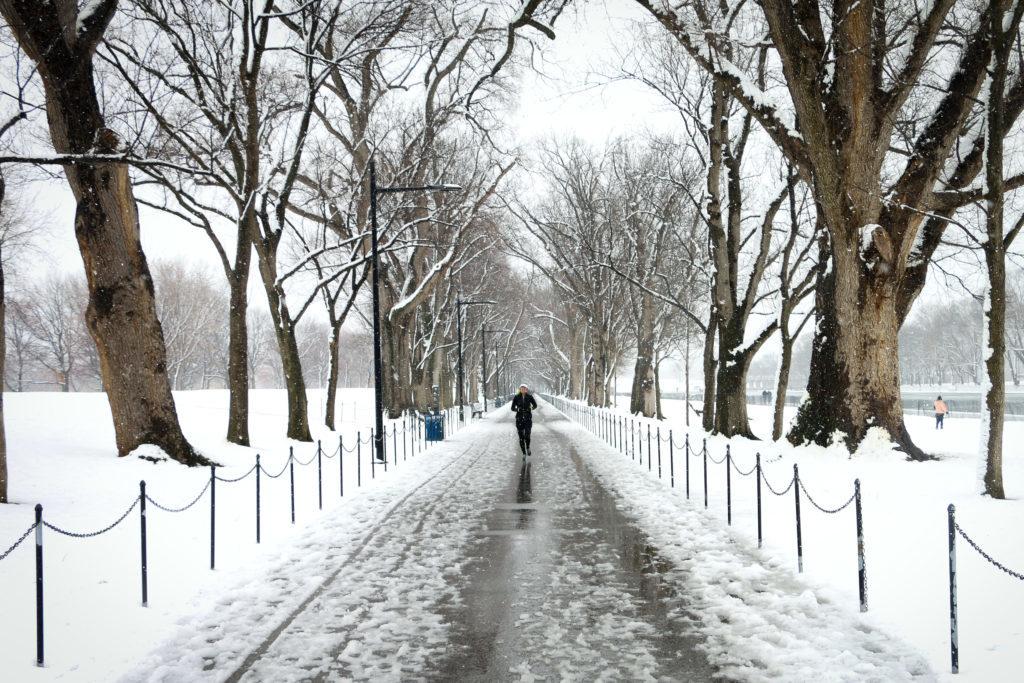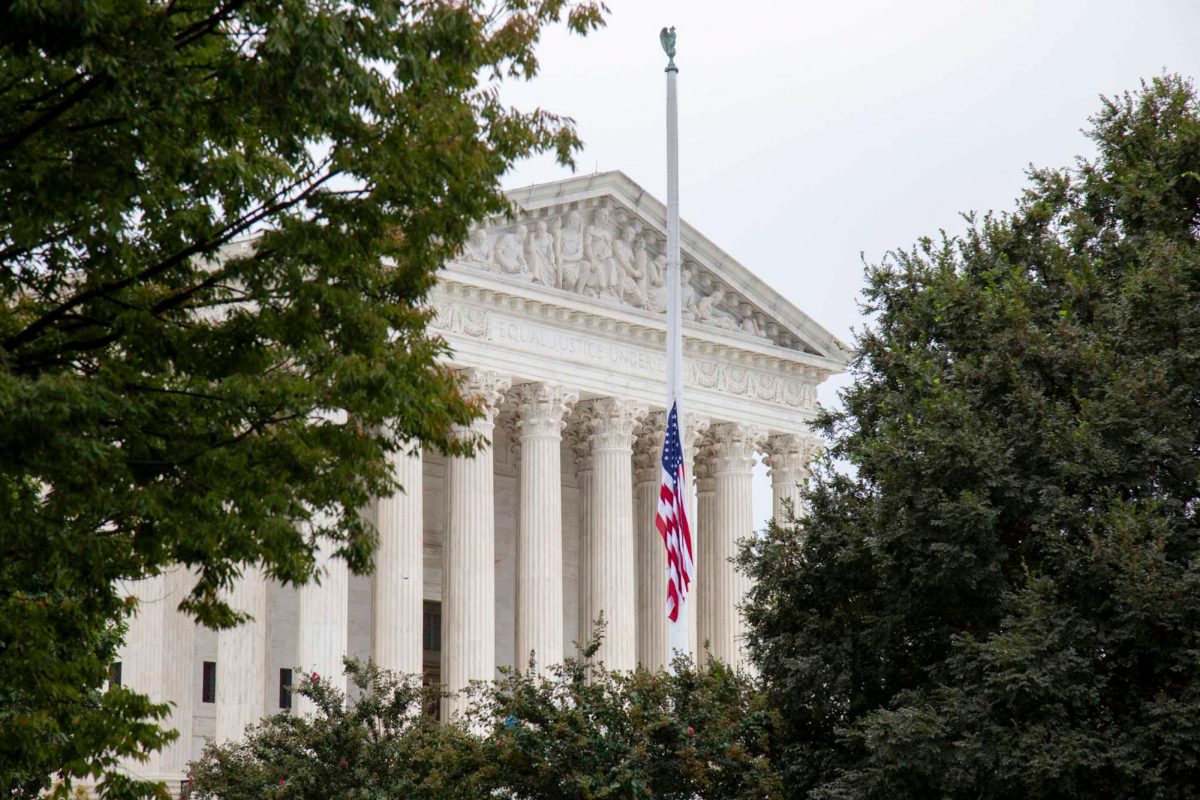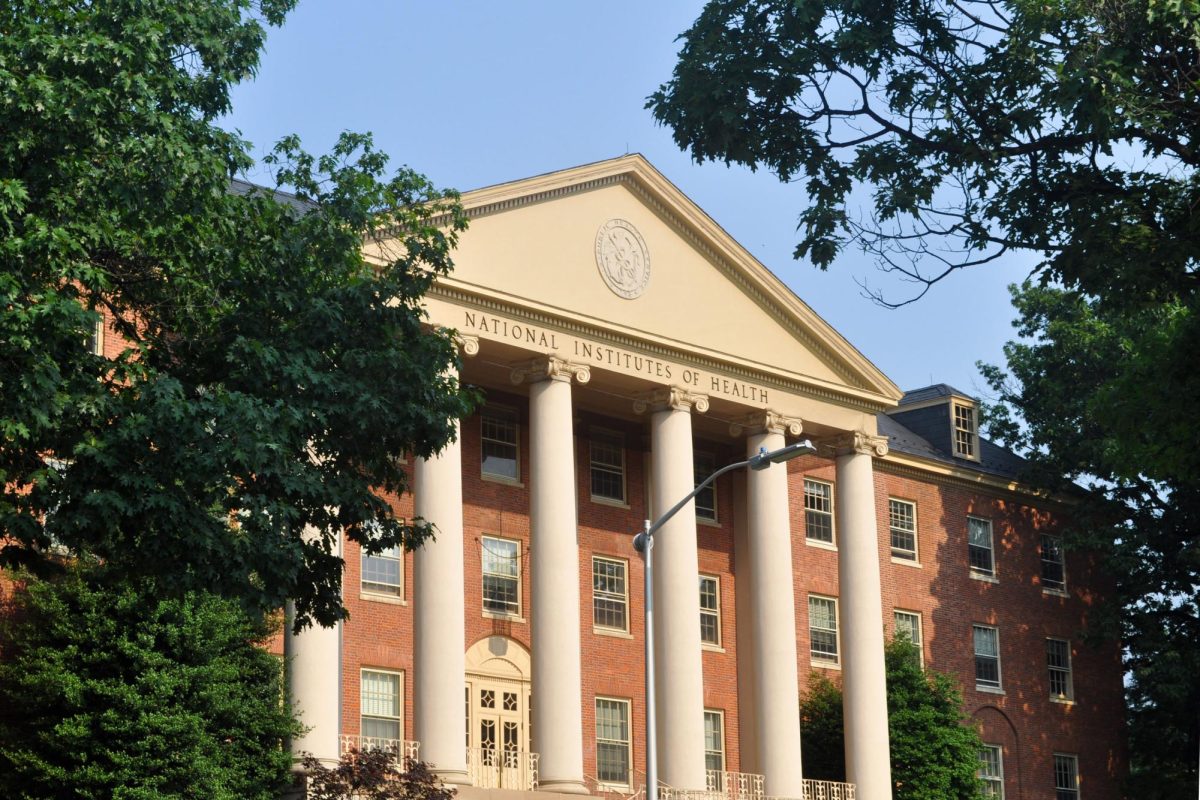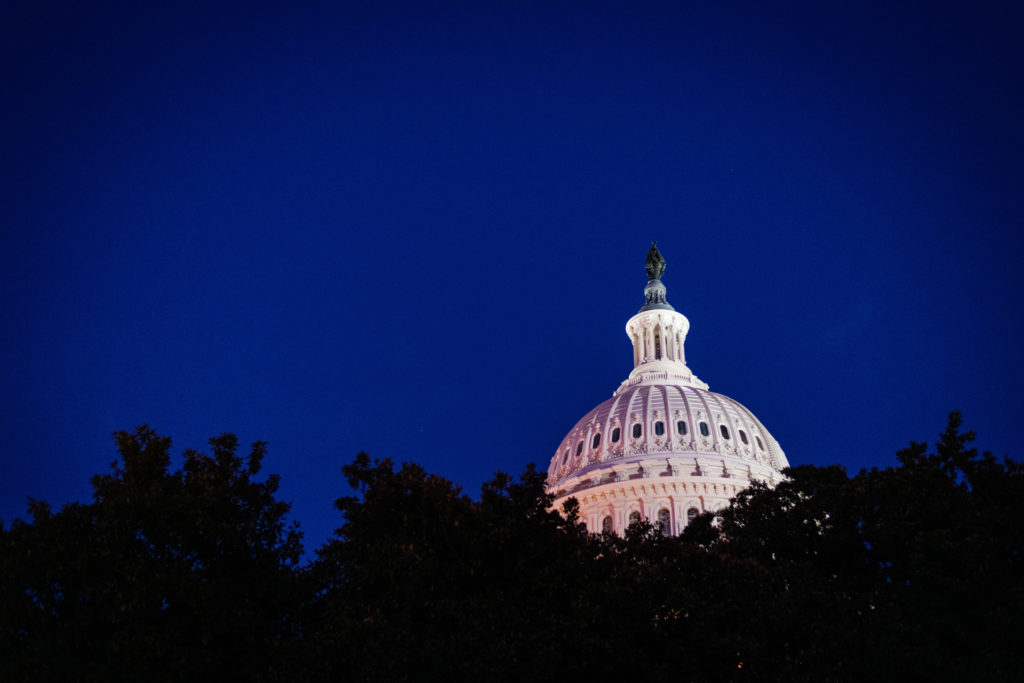After his favorite Karaoke bar, “Big Mikes,” closed in March due to the COVID-19 pandemic, Michael Fantuazzo brought his musical hobby to Gelman Library.
Fantuazzo, a third-year law student who lives off campus with his dog, Fry, said without in-person social events to attend, he used Facebook Live to stream his Karaoke performances to fight feelings of isolation. He said he held a Facebook Live charity karaoke event outside of Gelman for his birthday in December, which raised money for Doctors Without Borders, and held another performance the day before the inauguration.
“In this time, you have got to celebrate the moments,” Fantuazzo said. “If 2020 was about ‘We have to shut everything down,’ I think 2021 has got to be about ‘We have to let the show go on,’ with protocols of course.”
Students said they’ve felt heightened levels of stress and anxiety dealing with online class and staying inside more than usual. Blaire is one of seven students who said in interviews that they’ve leaned on hobbies like chess and yoga to keep their spirits up as the pandemic rages on.
Fantuazzo said he set up a karaoke livestream in Gelman the day before President Joe Biden’s inauguration to cope with the anxiety and fear he felt about the potential for violence that day. He added that he frequents Black Lives Matter Plaza with his dog to alleviate his sense of loneliness.
“We have all of this open outdoor space, and we should be doing more events, like outdoor singing,” he said. “That’s something you can really space out but people can enjoy. People can bring a chair to the lawn. I would really love it if people tried to commit to more of that.”
Nyle Hutchinson, a sophomore majoring in psychology, said he’s been playing chess and meditating to cope with the stress he feels without friends nearby for emotional support. He said he lived at home in New York for the fall semester and is now living in on-campus housing.
“When you do positive things and have a positive attitude, it makes you want the best for yourself, so you work harder, and when you work harder, you feel better so it creates the potential for a very great cycle,” Hutchinson said.
He said when he was at home in the New York City area, he took hikes with his friends in Central Park, where he worked as a surveyor. He said students who are currently struggling with mental health should take the pandemic one day at a time and reach out to trusted friends or a counselor for help.
Students can call Counseling and Psychological Services every day between noon and 4 p.m. if they need to meet with a therapist and can call at any time outside of business hours for urgent needs. The Centers for Disease Control and Prevention reported that 75 percent of Americans between the ages of 18 and 24 have experienced poor mental health tied to the pandemic.
“Really all you can do is today, so make the most of today so that your tomorrow will be just a little bit better, and sooner or later you will be ready for the future you were so worried about,” he said.
April Mihalovich, a senior majoring in criminal justice, said she’s taking classes at her home in Cape Cod, Massachusetts. Mihalovich said the virtual class setting this year has given her the opportunity to have a more flexible schedule, but she’s had trouble adding structure to her day.
“It’s definitely difficult not being able to perform the acts of getting up, getting ready, making my own meals, walking to class and things like that because having that routine and freedom to come and go from my dorm or wherever I’m living is definitely something that helped me take some space for myself,” she said.
Victoria Akinwande, a freshman majoring in political science and economics, said attending virtual classes and completing assignments entirely online from her home in Indianapolis has made her feel fatigued.
“Zoom has become this world where you can’t put down the controller because it’s a live game and you can’t pause it,” she said. “And you have these assignments due that are virtual that need to be completed, and you have all of these responsibilities in the real world too.”
Akinwande said making time to break away from computer work, take mental check-ins and talk to her mom and grandmother has helped her maintain her mental health.
“I say ‘OK, I’m stopping. This is my stopping point right now. I’m going to watch Netflix, eat some food, drink some water, do whatever I need to do to get back to my base point and then I can start doing work again,’” she said.
JJ Yu, an undecided freshman who is currently completing virtual classes from Korea, said she is 14 hours ahead of her professors teaching in D.C., and the time difference prevents her from attending classes synchronously.
She said watching class recordings instead of attending sessions live has made it difficult for her to meet her classmates, but she uses her classes’ GroupMe chats to connect with peers and coordinate study sessions that can work with her schedule.
“Because my classes are recordings, I don’t see my classmates’ faces,” she said. “I don’t study with them. I’m just alone. It’s my own thing. But if I make the study session and go, we talk to each other, we see each other, so it’s better.”
Lia DeGroot contributed reporting.








